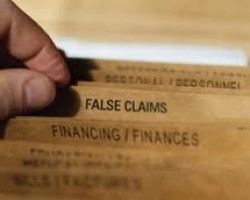
UNITED STATES DISTRICT COURT
SOUTHERN DISTRICT OF NEW YORK
———————————————————————-
UNITED STATES OF AMERICA,
Plaintiff,
-v-
WELLS FARGO BANK, N.A.,
Defendant.
JESSE M. FURMAN, United States District Judge:
The United States brings this civil fraud action against Defendant Wells Fargo Bank, N.A. (“Wells Fargo” or the “Bank”), alleging that the Bank engaged in misconduct in originating and underwriting government-insured home mortgage loans. The Government seeks damages and civil penalties, likely to total hundreds of millions of dollars, under the False Claims Act (the “FCA”), 31 U.S.C. §§ 3729 et seq.; the Financial Institutions Reform, Recovery, and Enforcement Act of 1989 (“FIRREA”), 12 U.S.C. § 1833a; and New York common law. Wells Fargo moves to dismiss the Amended Complaint pursuant to Rules 9(b) and 12(b)(6) of the Federal Rules of Civil Procedure, arguing that: (1) the Government released the claims at issue pursuant to a consent judgment entered by the United States District Court for the District of Columbia in a previous lawsuit; (2) many of the Government’s FCA and common law claims are time barred; (3) the Amended Complaint fails to satisfy the pleading requirements of Rule 9(b); and (4) the Amended Complaint fails to state a claim upon which relief can be granted.1
For the most part, Wells Fargo’s arguments are unavailing. As an initial matter, the consent judgment does not bar any of the Government’s claims. Furthermore, the claims are pleaded with sufficient particularity to satisfy Rule 9(b). In addition, the federal statutory claims are sufficient to allege a plausible basis for relief under Rule 12(b)(6). And, on the current record, there is no basis to dismiss any of the statutory claims as untimely. Therefore, all of the Government’s federal statutory claims may proceed. Many of the Government’s common law claims, however, must be, and are, dismissed. In particular, any tort claims that arose before June 25, 2009, are time barred. Additionally, the Government’s mistake of fact and unjust enrichment claims are dismissed in their entirety: Those arising before 2004 are untimely, and those arising thereafter are barred because the United States Department of Housing and Urban Development was aware of Wells Fargo’s misconduct at the time. Accordingly, as explained in more detail below, Wells Fargo’s motion is DENIED as to the Government’s federal statutory claims and GRANTED in part and DENIED in part with respect to the Government’s common law claims. 2
[…]
© 2010-19 FORECLOSURE FRAUD | by DinSFLA. All rights reserved.



